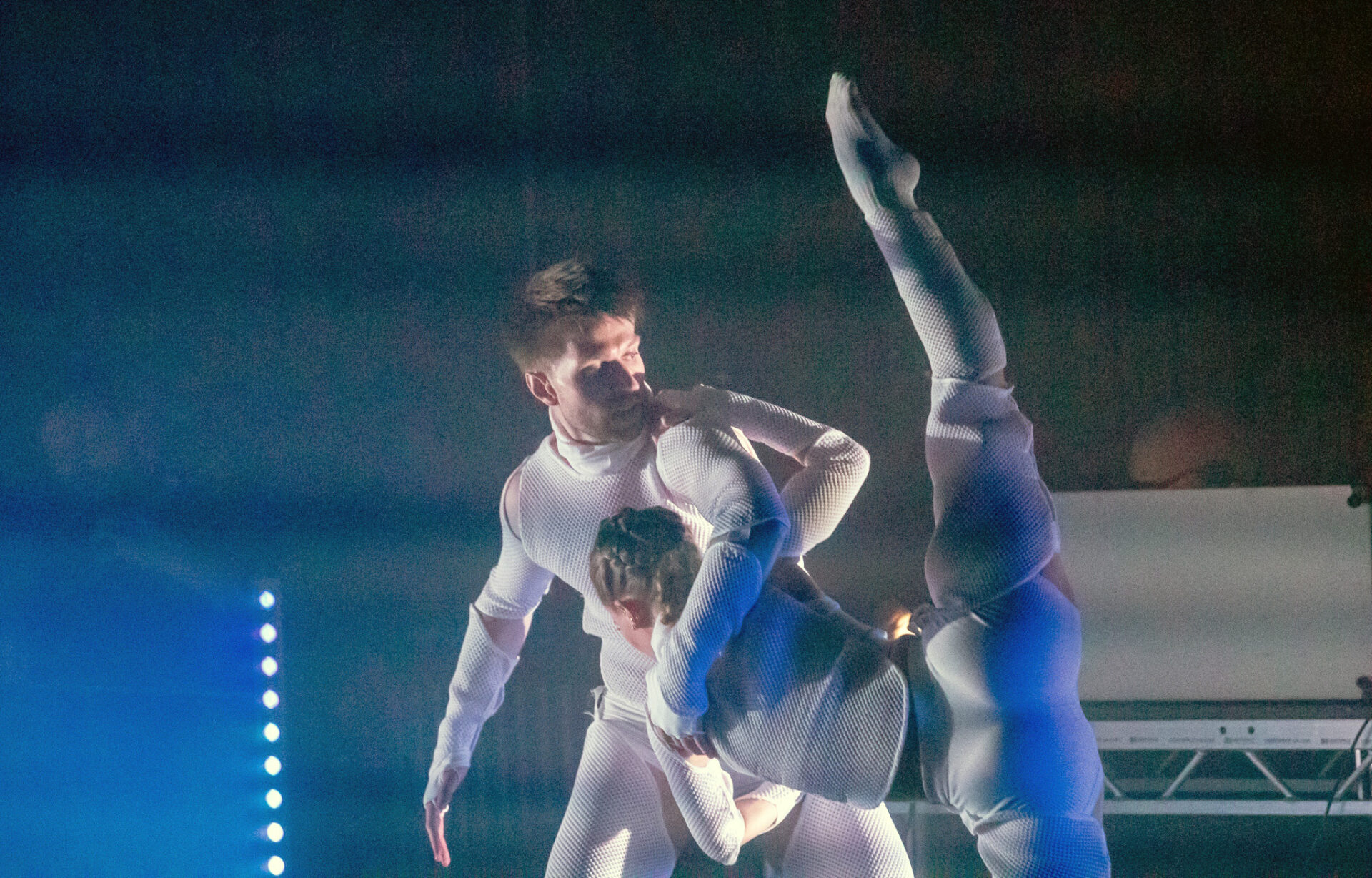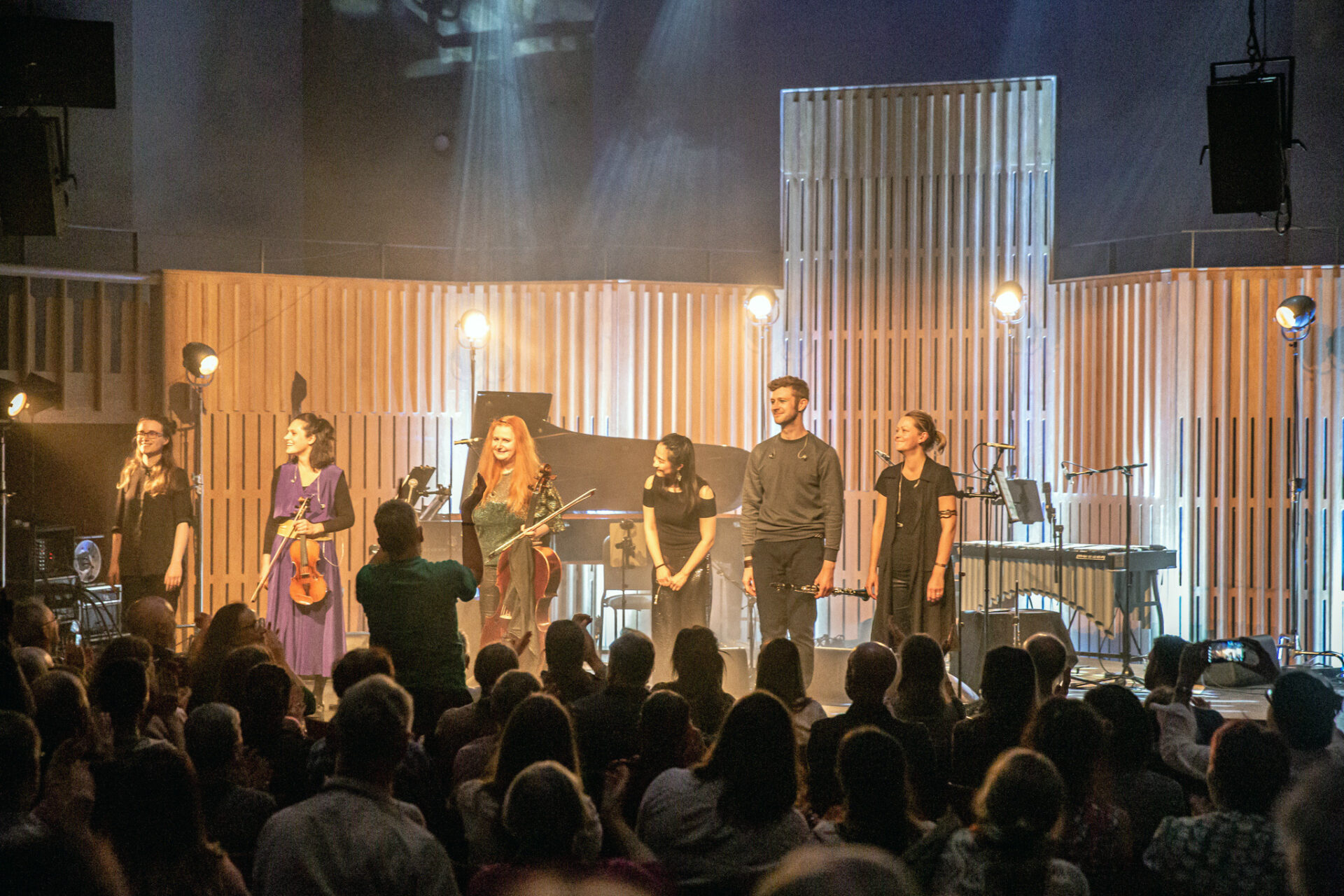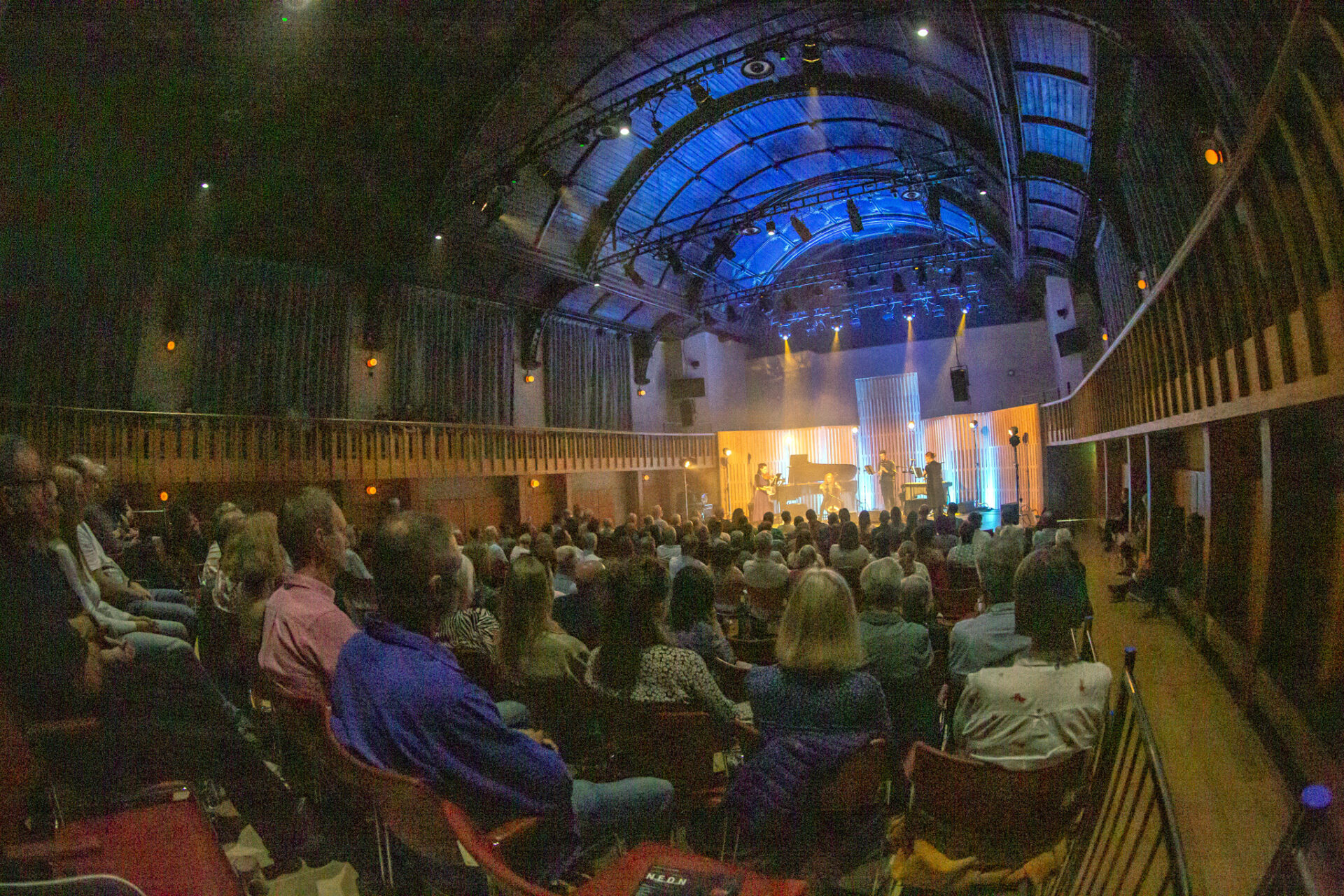Having just experienced a quite remarkable performance of Neon – the latest project to come from Manchester Collective – we emerge from inside the Howard Assembly Room at just before 10 o’clock this evening and step into the outside world of Leeds city centre, all hustle, bustle, twinkling fluorescent lights and reams of boundless energy. This nocturnal nightlife suddenly looks and sounds very different, our perceptions of it having been dramatically shifted by the preceding couple of hours.
Whilst it concludes the programme, Neon’s beating heart is Double Sextet. Written in 2007 by the American composer Steve Reich – one of the founders of minimalism and a man who has been at the forefront of contemporary music for the past five decades – Double Sextet, as its title may perhaps suggest, can be played in two ways; either with 12 musicians or with six playing against a recording of their “ghost selves”. Here we get the latter – flute, clarinet, vibraphone, piano, violin, and cello. The piece is in three movements – fast, slow, fast – the quicker sections driven along relentlessly by the interlocking, pulsating rhythm of the piano and vibes as they chart the tonal contours of the musical map. The remaining instruments detail the correct degrees of light and shade onto the tonal landscape. It is, quite frankly, astonishing and it is this hypnotic, inventive swell of sound that propels us out of the building and into the wider metropolitan nightlife
More than two hours beforehand the programme had begun with The Age of Spiritual Machines, a new work for strings, electronics and two dancers, Hannah Rudd and Jonathan Savage, which captures music and movement in perfect harmony. Created by composer Daniel Elms and choreographer Alexander Whitley – with whom there was a subsequent Q&A session speaking about the genesis of the work and the creative processes therein – The Age of Spiritual Machines reflects the resonance of technology and humanism as they interact. It is at one, sensitive and sensual, spirited and tender.

After the interval and before the concluding Double Sextet, we are introduced to two pieces specially commissioned by Manchester Collective. The first is the eponymous Neon by the hugely innovative British composer Hannah Peel, and the second, Quanta, by the Berlin-based multidisciplinary artist, Lyra Pramuk.
As the stage diffuses into a haze of orange incandescence – mimicking the colours of street lighting – Neon begins to blend layer upon layer of live electronics processing with field recordings from Tokyo’s Shinjuku Station. Coalescing with the dynamic instrumentation of the Collective, Neon captures not only the often-frenetic activity and energy of a city after dark but also the empty spaces and associated mystery that lie in between.
Receiving its world premiere here in the Howard Assembly Room tonight, Quanta marks the first time that Lyra Pramuk has written for a classical ensemble. Taking its inspiration from Carlo Rovelli’s book The Order of Time, Quanta fuses the classical with a pop sensibility and in so doing embraces a heightened sense of gravity, energy, motion, space, and time itself as it ticks remorselessly away.
Nestling between the two commissions lies Manchester Collective’s interpretation of the late American composer Julius Eastman’s Joy Boy. Influenced by the sound of ticker-tape on the Stock Exchange, the score’s minimal structure and excitable rhythmic energy has all six musicians operating in their individual time bubble before the sound disintegrates into one of loose improvisation and vague psychedelia.
Neon is a beautifully constructed programme of exhilarating sound and vision, executed to perfection and one in which our understanding of light and life as they present after dark are challenged and changed.

Photos: Simon Godley
More photos from this performance of Neon are HERE




